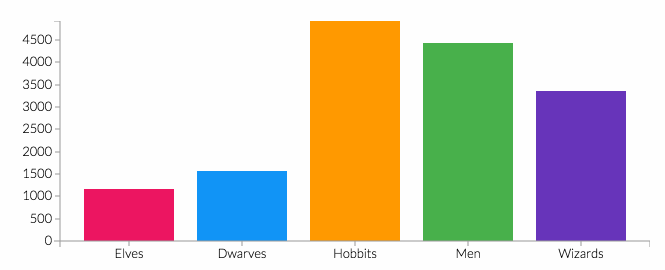IMPLEMENTASI MODEL DAN SISTEM PENDIDIKAN PESANTREN PERSATUAN ISLAM
DOI:
https://doi.org/10.33853/istighna.v4i1.191Keywords:
Models, education systems, pesantren.Abstract
The pesantren learning system is considered as an alternative system that is presented in overcoming the various moral problems that occur today. Pesantren Persatuan Islam 1-2 Bandung, as the first pesantren to give birth to other pesantren regulations, certainly has a unique model and education system. This study used a qualitative approach with a case study method in Islamic Boarding School 1-2 Bandung. The results illustrate that the education model of the Islamic Boarding School 1-2 Bandung has three educational paths, namely the Islamic boarding school education pathway, the school education pathway, and the out-of-school education pathway. The pesantren education pathway and the school education pathway are presented in the general curriculum and pesantren curriculum, both boarding and non-boarding, which are regulated at each level of education at the Islamic Boarding School 1-2 Bandung, namely the Tajhiziyyah, Tsanawiyyah, Diniyyah Wustha, and Mualimien levels. The learning system presented seeks to combine various disciplines with religious knowledge, thus giving birth to strong and solid Islamic values. Meanwhile, this pesantren also has an educational path outside the pesantren which is provided through family education activities, routine teaching activities, special recitation for mothers, special courses for religious studies, routine tadarus and various studies of PERSIS scholars broadcast through PERSISTV. Thus the various activities presented through this educational model and system are able to produce students who have graduates who are competent in all fields. These graduates are proven by the presence of entrepreneurs, scientists, well-known figures, education practitioners, and scholars who were born thanks to the education that has been organized by the Islamic Boarding School 1-2 Bandung.Downloads
References
Abdullah, Anzar, ‘Madrasah Di Indonesia Dari Masa’, Paramita, 23.2 (2013), 193–207
Alwi, B. Marjani, ‘Pondok Pesantren: Ciri Khas, Perkembangan, Dan Sistem Pendidikannya’, Lentera Pendidikan : Jurnal Ilmu Tarbiyah Dan Keguruan, 16.2 (2016), 205–19 <https://doi.org/10.24252/lp.2013v16n2a8>
Amarullah, Muhamad Matin Shopwan, Mulyani Mulyani, and Ari Prayoga, ‘Kepemimpinan Karismatik Kiai Dalam Membangun Budaya Organisasi Di Pesantren Salafiyah’, Jurnal Dirasah, 03.02 (2020), 1–12 <https://ejournal.iaifa.ac.id/index.php/dirasah>
Azra, Azyumardi, Pesantren: Kontinuitas Dan Perubahan, ed. by Nurcholih Madjid (Jakarta: Paramadina, 1997)
Bashori, Bashori, ‘Modernisasi Lembaga Pendidikan Pesantren’, Jurnal Ilmu Sosial Mamangan, 6.1 (2017), 47 <https://doi.org/10.22202/mamangan.1313>
Budiyanti, Nurti, ASep Abdul Aziz, and Palah, ‘THE FORMULATION OF THE GOAL OF INSAN KAMIL AS A BASIS FOR THE’, IJECA (International Journal of Education and Curriculum Application), 3.2 (2020), 1–10
Busahdiar, ‘Dinamika Pendidikan Di Pesantren’, Misykat Al-Anwar Jurnal Kajian Islam Dan Masyarakat, 27.2 (2016), 1–12
Creswell, John W., Research Design Pendekatan Kualitatif, Kuantitatif, Dan Mixed, ed. by A. Fawaid, 4th edn (Yogyakarta: Pustaka Belajar, 2016)
Feisal, Yusuf Amir, Reorientasi Pendidikan Islam (Jakarta: Gema Insani Press, 1995)
Hidayat, Tatang, Ahmad Syamsu Rizal, and Fahrudin Fahrudin, ‘Peran Pondok Pesantren Sebagai Lembaga Pendidikan Islam Di Indonesia’, Ta’dib: Jurnal Pendidikan Islam, 2018 <https://doi.org/10.29313/tjpi.v7i2.4117>
Miles, M. B., and A. M. Huberman, Qualitative Data Analysis, Second Edi (London: SAGE Publications, Inc., 1994)
Moleong, Lexy J., ‘Metodologi Penelitian Kualitatif (Edisi Revisi)’, in PT. Remaja Rosda Karya, 2017
Muchtar, Abdul Latief, Gerakan Kembali Ke Islam: Warisan Terakhir A. Latief Muchtar/Abdul Latief Muchtar, ed. by Cucu Cuanda and Miftah Fauzi Rakhmat (Bandung: Remaja Rosdakarya Bandung, 1998) <http://lib.ui.ac.id/detail.jsp?id=2251>
Mujab, Saiful, ‘Memahami Tradisi Spiritualitas Pesantren (Sebuah Analisis Sosio-Historis Terhadap Spiritualitas Pesantren’, Asketik, 1.2 (2018), 79–90 <https://doi.org/10.30762/ask.v1i2.520>
Nihwan, ‘Pendidikan Pesantren Dalam Mempertahankan Nilai-Nilai Pendidikan Islam’, Jurnal Studi Keagamaan, Pendidikan Dan Humaniora, 4.1 (2017), 151–65
Noer, Deliar, Administrasi Islam Di Indonesia (Jakarta: Rajawali Press, 1983)
Nurmadiah, Nurmadiah, ‘Kurikulum Pendidikan Agama Islam’, Al-Afkar : Jurnal Keislaman & Peradaban, 2.2 (2016) <https://doi.org/10.28944/afkar.v2i2.93>
Pimpinan Persatuan Islam, Tafsir Qanun Asasi Dan Dakhili Persatuan Islam, 1th edn (Bandung: Pusat Pimpinan Persis, 1984)
Prayoga, Ari, Irawan Irawan, and Ahmad Rusdiana, ‘KARAKTERISTIK PROGRAM KURIKULUM PONDOK PESANTREN’, Jurnal Pendidikan Dan Pendidikan Agama Islam, 02.01 (2020), 77–86 <http://ejournal.uniks.ac.id/index.php/Alhikmah/article/view/424>
Prayoga, Ari, and Jaja Jahari, ‘Manajemen Jejaring Kerjasama Pondok Pesantren’, AL MA’ARIEF : Jurnal Pendidikan Sosial Dan Budaya, 1.2 (2019), 125–33 <https://doi.org/10.35905/almaarief.v1i2.1107>
Prayoga, Ari, and Mohammad Sulhan, ‘Pesantren Sebagai Penangkal Radikalisme Dan Terorisme’, Dirasat: Jurnal Manajemen Dan Pendidikan Islam, 5.2 (2019), 163–77 <https://doi.org/10.26594/dirasat.v5i2.1812>
Sadulloh, Uyoh, ‘Pengantar Filsafat Pendidikan’, Bandung: Alfabeta, 2004
Sulaiman, Rusydi, ‘Hakikat Pendidikan Pesantren’, Edugama: Jurnal Kependidikan Dan Sosial Keagamaan, 5.1 (2019), 1–29
———, ‘Pendidikan Pondok Pesantren: Institusionalisasi Kelembagaan Pendidikan Pesantren’, ’Anil Islam, 9.1 (2016), 148–74Downloads
Published
How to Cite
Issue
Section
License
Copyright Notice
Authors hold and retain copyright and grant the journal right of first publication with the work simultaneously licensed under a http://creativecommons.org/licenses/by-sa/4.0that allows others to share the work with an acknowledgment of the work's authorship and initial publication in this journal.

This work is licensed under a Creative Commons Attribution-ShareAlike 4.0 International License.
















